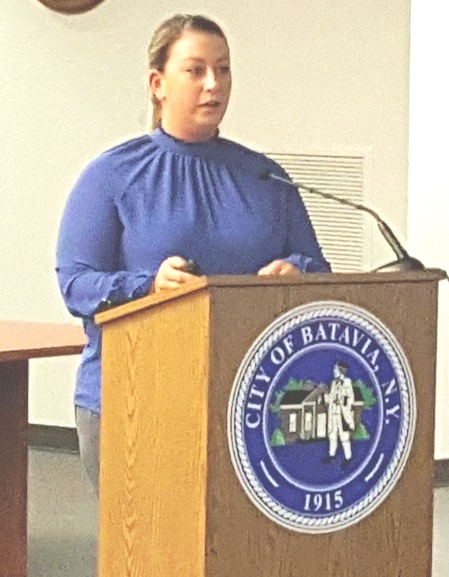Worth: 40-year water supply pact is a win-win for City of Batavia, Genesee County
Approval of a 40-year water supply agreement between the City of Batavia and Genesee County is a win-win situation for both municipalities, according to a City official who has played an integral role in the negotiations.
Speaking after tonight’s Batavia City Council meeting – at which council members unanimously approved the amended agreement through the year 2059, Public Works Director Matt Worth said the new pact equally benefits both entities.
“The important parts of it are, from the City point of view, is the City (last month) entered into a 40-year agreement with the sales tax with Genesee County -- which gives it stability as a financial revenue long-term – and, in addition, the City now does not have to build a new water plant,” Worth said.
Worth estimated the cost of a new water plant at $35 million, expressing relief that the city no longer has that responsibility.
From Genesee County’s perspective, Worth said the agreement’s additional 60-cent surcharge (per 1,000 gallons) gives the county the long-term stability to fund necessary improvements.
“Over the 40 years, the county can go for long-term bonds and has the ability to say ‘Yes we have the revenue stream to pay for those bonds’ (and that leads to) better rates and long-term stability to do those improvements and bring the additional water in,” Worth noted. “Hopefully that spurs all the economic development and growth that usually comes along with public water.”
Worth said the prior agreement -- an extension of the original contract from 2000 -- runs through Dec. 31 and included a 60-cent surcharge to help pay for water improvements. This new agreement goes out to Dec. 31, 2059 and tacks on another 60-cent surcharge to the City.
He said it could provide the impetus to get water into other areas of the county.
“It could mean getting public water into some of those towns and areas that have not had it – Bethany being a prime example,” he said. “Alabama didn’t have water for quite a while, now they’re starting to get water into that town as well.
“That’s kind of the avenue that has been put forward for long-term stability financially and long-term stability as far as providing safe, public drinking water to an awful lot of the county.”
City Council also passed, by 9-0 votes, a restated lease with Genesee County for water treatment facilities that would transfer the plant to the county once it is no longer being used, by mutual agreement, and a restated operations and maintenance agreement for the water treatment plant that takes into account actual costs compared to budget costs, with the City and County equally splitting any surplus end-of-the-year funds.
Both of these agreements are for 10 years.





